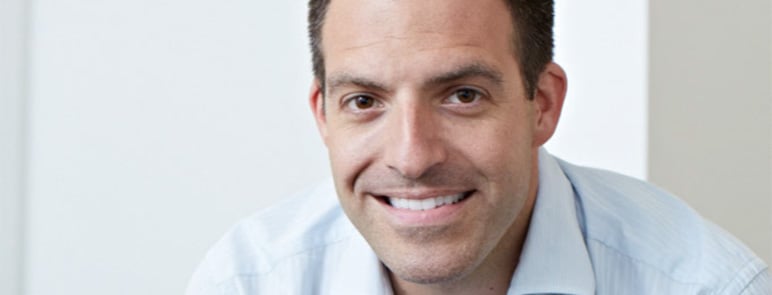Dan Perlet
Director of Communications, Amazon
Out, proud and staying out
Dan Perlet says that people can be forced back into the closet as they move between teams and jobs. This is stressful and unproductive, yet easily avoided through openness, care and good communication.
Coming out can be tough. If you feel you're in a safe place, it's often for the best - if for no other reason than it can reduce levels of anxiety. Yet, as people move through their career, across organisations and into other businesses they can often be forced back into the closet. Will your new team accept you like your old one did? This should not and need not be the case.
Tell us who you are and about your experience
I am a communications professional working on developing and running communication campaigns for companies predominately in the technology, media and telecoms space. I help them to tell their story to customers, shareholders, media, analysts, politicians, regulators, charities, third party groups and employees.
I've been fortunate to work with fantastic in-house and agency teams to deliver campaigns that help to raise awareness and build positive perceptions of big brands.
I am currently the Director of Communications for Amazon in the UK, a role I've been doing for the past year and a half. I was previously at the mobile network, EE, for four years as the Director of Corporate and Financial Affairs.
Prior to that, I was Global Director of Communications and Social Media for Corbis Images, a digital media company owned by Bill Gates.
I started my career in journalism at CNN followed by roles at global PR firms Burson-Marsteller and Porter Novelli.
Why is this important to you?
It's important that as many people as possible understand that LGBT+ employees will be a lot happier, contribute more and stay at their jobs longer if they feel that they can be open about who they are.
LGBT+ people have to come out daily in the workplace, and particularly when they are starting a new job, it's not easy. Being able to be open makes LGBT+ people feel more welcome, more recognised and valued for everything that we bring to the table, and it avoids a lot of awkward moments for everyone.
Research from OUTstanding shows that a big majority of LGBT+ people feel they have to go back into the closet again when they start a new job and wait for months to see if their new employer and new team will accept them. This shouldn't be the case anymore.
All of us, from employers to fellow employees and LGBT+ individuals have more to do to make sure it's comfortable and easy for people to come out if they want to.
What challenges have you faced in your career?
Working in media and communications, I've worked in settings that are fairly welcoming to LGBT+ people.
One of the main challenges is the automatic assumption from people in the workplace that everyone is straight and the lack of awareness that not everyone is. While it can be addressed fairly quickly, it can be a bit awkward for everyone involved. Greater understanding and awareness of differences in the workplace can go a long way to building stronger teams and better employee engagement.
How does the profession need to progress / develop?
The main thing we need to do is make people aware that they work with LGBT+ colleagues, and that they should be sensitive to that.
My preferred approach to raise awareness is to celebrate and recognise LGBT+ individuals rather than have company training, coaching, etc. - though in extreme cases that can be necessary.
Companies should have LGBT+ groups for employees, and use them as a forum to help employees become more informed that they work with lots of other LGBT+ people even if they don't know it, and that it's helpful to everyone involved if they are cognisant of that and informed about it.
LGBT+ groups, sponsored by senior executives in a business, can provide a platform for LGBT+ issues, and they can run a variety of activities, from informal roundtables, social events, mentoring programmes, career development workshops and newsletters.
It's equally important that LGBT+ groups have strong participation and endorsement from straight allies (particularly senior execs) to demonstrate that they welcome LGBT+ colleagues and to make it all feel as normal as it actually is.
What one piece of advice would you give to others?
As long as you feel safe to do so, come out at work. If you don't get the reception you want, then it's not the right place for you, and at the same time you can feel proud that by coming out you at least started the change by being brave enough to be open.
It also frees you from being anxious and inside your head - wondering what people know, don't know and think about you. It allows you to take ownership of your identity and confront issues head on, if need be.
We all have a huge amount to contribute and we should feel free to be open about being LGBT+ if we want to be.









